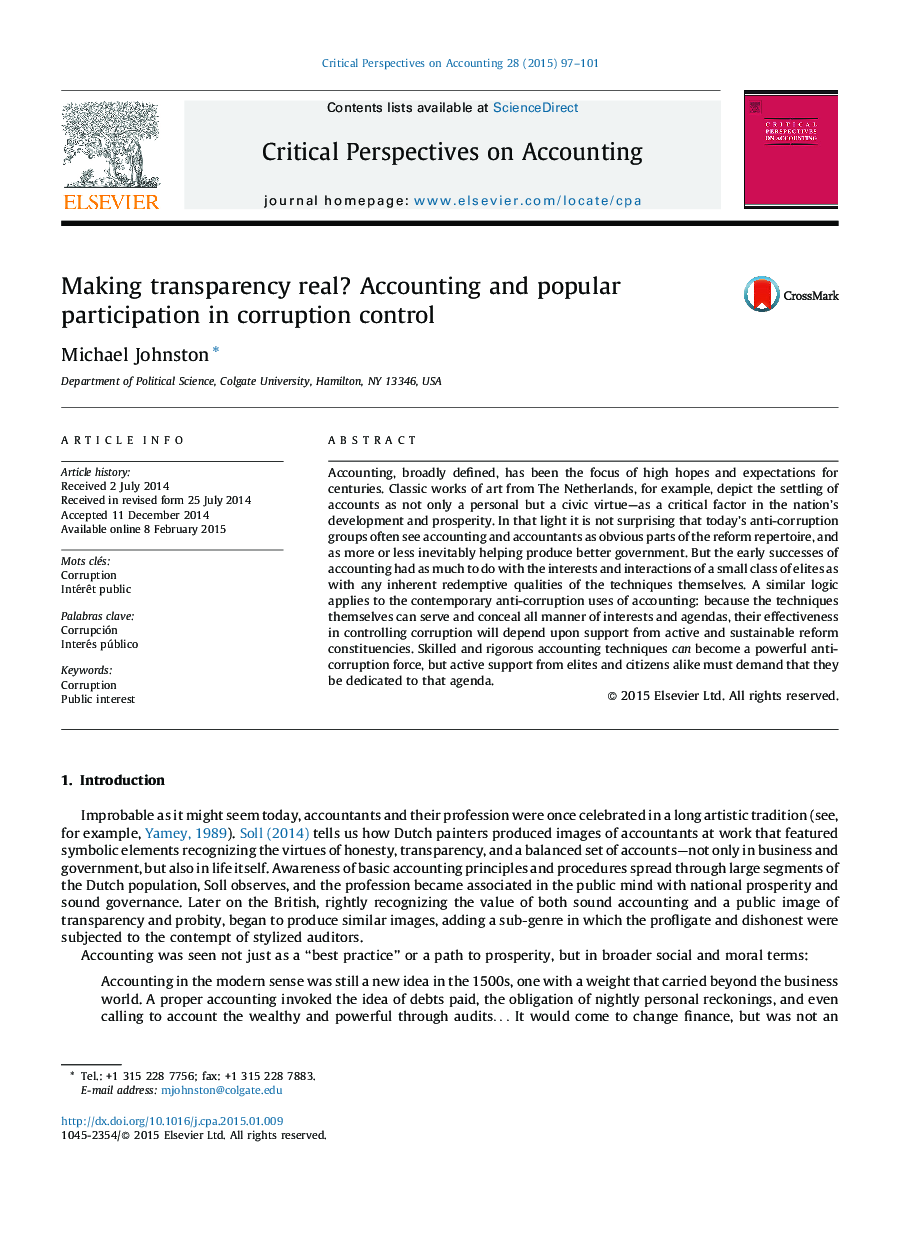| Article ID | Journal | Published Year | Pages | File Type |
|---|---|---|---|---|
| 1000740 | Critical Perspectives on Accounting | 2015 | 5 Pages |
Accounting, broadly defined, has been the focus of high hopes and expectations for centuries. Classic works of art from The Netherlands, for example, depict the settling of accounts as not only a personal but a civic virtue—as a critical factor in the nation's development and prosperity. In that light it is not surprising that today's anti-corruption groups often see accounting and accountants as obvious parts of the reform repertoire, and as more or less inevitably helping produce better government. But the early successes of accounting had as much to do with the interests and interactions of a small class of elites as with any inherent redemptive qualities of the techniques themselves. A similar logic applies to the contemporary anti-corruption uses of accounting: because the techniques themselves can serve and conceal all manner of interests and agendas, their effectiveness in controlling corruption will depend upon support from active and sustainable reform constituencies. Skilled and rigorous accounting techniques can become a powerful anti-corruption force, but active support from elites and citizens alike must demand that they be dedicated to that agenda.
